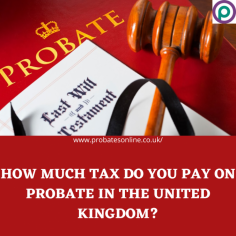
In the UK and in many other countries, when someone dies, their estate may be subject to tax. In most cases, that tax due is Inheritance Tax (IHT) which the family of the deceased pay on their ‘inheritance’. However, in some cases, if the deceased’s estate is extensive and incorporates overseas investments or properties, a family business or anything else that ‘earns’ an income, Capital Gains Tax (CGT) may also be applicable.
How much tax on probate the family pays on a deceased’s estate largely depends on its total value. The estate includes any pay-outs on life assurance policies, investments, rental properties and cash in the bank. It may be that the deceased’s estate is not liable to pay tax on probate if the value of the estate is below HMRC’s tax threshold.

